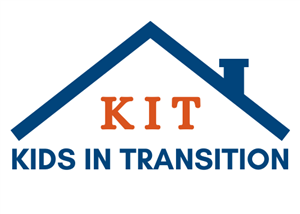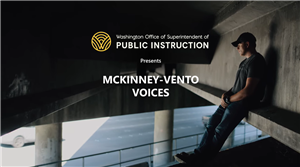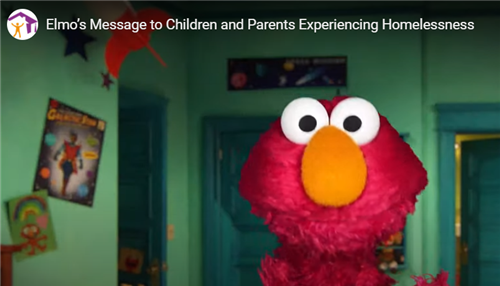- Everett Public Schools
- Overview
Homeless - KIT Program
Page Navigation
-
 The Everett Public Schools Kids in Transition (KIT) program implements the McKinney-Vento Homeless Education Act and the Foster Education Program.
The Everett Public Schools Kids in Transition (KIT) program implements the McKinney-Vento Homeless Education Act and the Foster Education Program.
The McKinney-Vento Homeless Education Act of 1987 provides support for homeless children and youth to continue their education without interruption or barriers. The definition for McKinney-Vento support is far more inclusive than what most people think when they think of "homeless." Please review this information to understand more.If your family is homeless, or if you are in a temporary living situation due to economic circumstances, your preschool-aged and school-aged children may be eligible for some additional school support under federal law.
KIT supports students who qualify as either living in a foster care; or those who meet the definition of homeless under federal McKinney-Vento legislation. McKinney-Vento eligibility is based on the student's nighttime residence and is far more inclusive than what many consider homeless. Students who lack a fixed, regular, and adequate nighttime residence may qualify. KIT works to eliminate barriers to students’ enrollment, academic success, and extra-curricular participation. We do what we can to ensure eligible students have school supplies and may coordinate academic support, tutoring, or facilitate student participation in extended day or summer school classes. We may help students participate in activities such as school-related sports or clubs by paying the required fees. KIT may coordinate transportation for eligible students to maintain school stability, as long as the commute is feasible. Last year, Everett Public Schools supported over 1,600 eligible students at some time during the school year. For more information, please contact your building's KIT support staff or the KIT office at 425-385-4032 or email at KIToffice@everettsd.org.Contact Everett Public Schools KIT Staff at the school if you or someone you know is experiencing unstable housing.KIT Staff by building (click to find your best contact)
KIT District Office425-385-4032 KIT Office PhoneContacts:Amy Perusse, KIT Program Coordinator/District McKinney-Vento LiaisonMcKinney-Vento technical support for the following schools:All secondary schools, plus the following elementary schools:Forest View, Mill Creek, Monroe, Penny Creek, Tambark Creek, and Woodside.Abby Mayers, Family & Community Engagement Coordinator/Foster Care CoordinatorMcKinney-Vento technical support for the following schools:All ECEAP programs, plus the following elementary schools:Cedar Wood, Emerson, Garfield, Hawthorne, Jackson, Jefferson, Lowell, Madison, Silver Firs, Silver Lake, View Ridge, and Whittier.Diane Indivero, KIT Office AssistantChris Fulford, Director of Categorical Programs
425-385-4030
-
Who qualifies for KIT?
A child or youth is considered homeless and qualifies for services when he or she lacks a nighttime residence that is fixed, regular, and adequate.
This may include the following:- Sharing housing due to economic hardship, loss of housing, or a similar reason.
- Living in motels, campgrounds, trailer parks, or similar locations due to lack of alternative, adequate accommodations.
- Transitional housing (a HUD subsidized rent program going from homeless to independent living - usually within 24 months).
- Staying in an emergency homeless shelter.
- Children and youth abandoned in hospitals, or who are staying with friends or relatives because their parents do not have stable housing, or are unable to care for them.
- Living in cars, RVs, boats, train stations, public spaces, parks, abandoned buildings, and other transient or substandard housing.
- Runaway youth, or children whose parent will not permit them to live at home.
- Unaccompanied youth who are not in the physical custody of a parent or guardian and also meet the McKinney-Vento definition of homeless.
- Migratory children and youth who are living in one of the above situations.
- Those who are coming out of one of the above situations and have moved to their own place after the school year has started, are eligible through the end of the school year that they moved into stable housing.
-
What about someone in Foster Care?
Click our Foster Education Program, offering support for eligible students in care.
Welcome to The Kids In Transition Program
-
Spanish McKinney-Vento Public Service Announcement
Below is a 30 second audio file between two Spanish speaking individuals about recently lost housing.
This message is designed to help families experiencing homelessness know their options.
Listen/Download the PSA recording here!
Videos to learn more:


QuickLinks
- ❆ Winter/Holiday Help ❆
- Cold Weather Shelters
- T-Mobile Internet: Students (K-12) could be eligible for a free hotspot & more.
- Community Services Directory
- National & State Homeless Education Organizations
- Parents: Know your rights (en espanol)
- Parents: Know your rights
- State McKinney-Vento information
- Students: Know your rights

